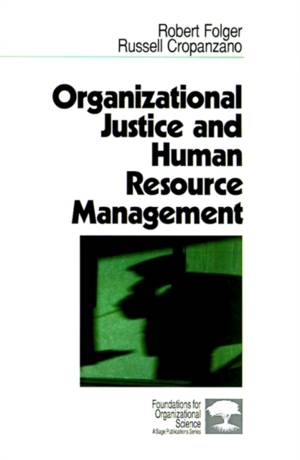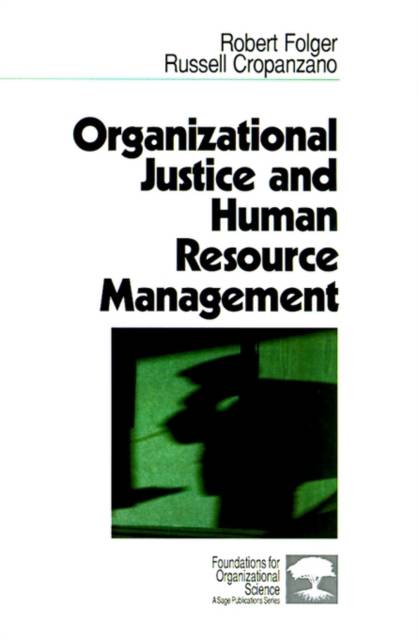
- Afhalen na 1 uur in een winkel met voorraad
- Gratis thuislevering in België vanaf € 30
- Ruim aanbod met 7 miljoen producten
- Afhalen na 1 uur in een winkel met voorraad
- Gratis thuislevering in België vanaf € 30
- Ruim aanbod met 7 miljoen producten
Zoeken
€ 238,45
+ 476 punten
Omschrijving
Why are some acts, but not others, perceived to be fair? How do people who experience unfairness respond toward those held accountable for the unfairness? Organizational Justice and Human Resource Management reviews the theoretical organizational justice literature and explores how the research on justice applies to various topics in organizational behavior, including personnel selection systems, performance appraisal, and the role of fairness in resolving workplace conflict. Authors Robert Folger and Russell Cropanzano introduce a framework of organizational justiceùFairness Theoryùthat integrates previous work in this area by focusing on accountability for events with negative impact on material or psychological well-being. The book concludes with a chapter highlighting those topics that represent promising future directions for research. Researchers, scholars, and doctoral-level students in human resources, organizational behavior, and ethics will find this a timely, thought-provoking resource.
Specificaties
Betrokkenen
- Auteur(s):
- Uitgeverij:
Inhoud
- Aantal bladzijden:
- 304
- Taal:
- Engels
- Reeks:
- Reeksnummer:
- nr. 7
Eigenschappen
- Productcode (EAN):
- 9780803956872
- Verschijningsdatum:
- 1/02/1998
- Uitvoering:
- Paperback
- Formaat:
- Trade paperback (VS)
- Afmetingen:
- 158 mm x 233 mm
- Gewicht:
- 349 g

Alleen bij Standaard Boekhandel
+ 476 punten op je klantenkaart van Standaard Boekhandel
Beoordelingen
We publiceren alleen reviews die voldoen aan de voorwaarden voor reviews. Bekijk onze voorwaarden voor reviews.







